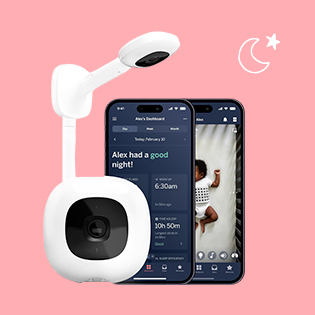Medications like Ozempic and Wegovy can help people lose a significant amount of weight. But can they also boost your fertility? In other words, are the rumors of "Ozempic babies" true?
Look up #ozempicbaby on Instagram or TikTok — or chat with a friend who recently had a surprise pregnancy — and the answer may be yes. Indeed, there's no shortage of women sharing stories of unexpected pregnancies after starting weight loss shots.
That may sound like good news, especially if you've been struggling to conceive. But there's not much science on fertility and weight loss shots (aka GLP-1 agonists), and taking them when you're trying to get pregnant comes with risks.
- Weight loss shots like Ozempic and Wegovy, also known as GLP-1s, seem to boost fertility. Losing weight can lead to more regular periods, which can make it easier to get pregnant.
- Weight loss shots aren't an approved fertility treatment. The risks to pregnancy aren't well-understood, so you shouldn't use GLP-1s if you're actively trying for a baby.
- You should stop taking GLP-1s at least two months before trying to conceive. That's enough time to ensure the meds are no longer in your system.
Are 'Ozempic babies' a real thing, and do weight loss shots affect fertility?
Anecdotally, GLP-1 medications like Ozempic and Wegovy seem to make it easier to get pregnant. But for now, there's no research showing exactly how much these meds might bolster conception chances — or how long someone needs to take them in order to reap the potential fertility benefits.
Track your cycle, find out the best time to conceive, and record your symptoms in the What to Expect app.
Fertility experts like Aaron Styer, M.D., the founder and co-medical director of the Colorado Center for Reproductive Medicine (CCRM) Boston in Newton, Massachusetts, and a member of the What to Expect Medical Review Board, have noticed an uptick in pregnancy rates in patients who lost at least 10 to 15% of their total weight with GLP-1s.
"Most of these patients had an increased body mass index [greater than 30] and infrequent or inconsistent ovulation due to polycystic ovary syndrome (PCOS),” says Dr. Styer. “Following weight loss, they began to ovulate (release an egg) consistently each month, and ultimately conceived with timed intercourse before undergoing any fertility treatments.”
Read This Next
But the phenomenon doesn't seem to be limited to people who are already seeing fertility doctors. There are also reports of women who aren't actively trying to conceive having surprise pregnancies after starting on weight loss shots.
"I've been on Ozempic for a year-and-a-half with no intention of getting pregnant,” says What to Expect Community mom DioJillian. “Have twins from IVF, after years of trying, so was SHOCKED when I found out I was pregnant spontaneously."
How do weight loss injections affect fertility?
Experts are still learning about the impact that GLP-1 medications may have on fertility. What is known is that losing excess weight can make it easier to get pregnant. Carrying too much body fat can disrupt levels of reproductive hormones, which may lead to irregular ovulation as well as insulin resistance, both of which make it harder to conceive, suggests recent research published in the International Journal of Molecular Sciences.[1]
Losing weight, on the other hand, can help balance out reproductive hormone levels. That can make periods more regular, which in turn may up the odds that an egg can be fertilized by sperm. It can also improve blood sugar levels, which may reduce inflammation throughout the body and generally create a more hospitable environment for a fertilized egg to grow.
That's not all. GLP-1 medications slow the absorption of food as well as oral medications. So if you take birth control pills, it's possible that your GLP-1 could slow the absorption of your pill and make it less effective.
The fertility-boosting effects of GLP-1s don't just apply to women, by the way. Men who are overweight have healthier, more active sperm after losing weight via weight loss shots. So if your partner is taking Ozempic or Wegovy, that could also up your pregnancy odds.
So what's the problem with taking weight loss shots if you're trying to conceive, then? Doctors say there are too many risks and unknowns associated with these medications to be sure they're safe when you're trying for a baby or already pregnant.
What are the risks of getting weight loss shots when you’re trying to conceive?
GLP-1s might seem like a godsend if you've been struggling to get pregnant. But they're not a magic bullet, and they carry significant risks.
The meds aren't recommended for pregnant women, so if you conceive while you're taking the shots, your baby will likely be exposed to some amount of the medication before you find out that you're expecting.
Because of the risks associated with these medications and pregnancy, and the unknowns about how they factor in to conception, fertility experts avoid using GLP-1s as part of any treatment — and tell their clients to do the same.
"At the current time, the use of GLP-1 agonists and other weight loss medications is not recommended to improve the chance of pregnancy," Dr. Styer says.
That's not to say you can't potentially use GLP-1s to reach a healthy weight in advance of trying to get pregnant. But it's important to have a conversation with your doctor if you want to try to go that route. It can take up to six weeks for GLP-1s to fully clear your system after your last dose.
To be safe, "we recommend discontinuing GLP-1 medications at least two months prior to trying to conceive," says Shannon Smith, M.D., a board-certified OB/GYN and partner at Brigham Faulkner OB/GYN Associates in Boston, Massachusetts, and a member of the What to Expect Medical Review Board.
And if you or your partner are on a weight loss medication and you aren't actively trying to conceive, talk with your doctor about whether you need to make adjustments to your birth control plan.
If you take birth control pills, you may need to use a backup form of contraception, especially during weeks where you're increasing your GLP-1 dose (which seems to have the greatest impact on birth control pill absorption).
Is it safe to take Ozempic when you’re pregnant?
It's too early to tell how GLP-1s might impact pregnancy or a developing fetus. And with the absence of solid safety data, GLP-1 medications are not recommended for pregnant women, according to the Cleveland Clinic.[2]
"The effects of GLP-1 medications taken when women become pregnant are unknown,” says Dr. Smith. “Thus, it is not recommended to take it if planning on trying to conceive, [and it is recommended] to discontinue if taking it after a positive pregnancy test."
It's possible that, in the future, recommendations for GLP-1s during pregnancy could change. Studies are ongoing, and weight loss drug manufacturers are also tracking health data from women who have taken the meds while pregnant or nursing.
But for now, the best thing to do is play it safe and avoid weight loss shots when you're pregnant or trying to conceive, say Dr. Styer and Dr. Smith.
When to call the doctor
Let your OB/GYN know if you find out that you're pregnant while you're on a weight loss drug. While you shouldn't panic, you should have a conversation about how to go off the shots. And of course, you'll want to come in for your first prenatal visit!
You should also let your doctor know if you haven't been able to get pregnant after trying for a year (if you're under 35) or for six months (if you're 35 or over). Together, you can talk about factors that may be impacting your fertility and decide on the best way to improve your chances of conceiving.
Weight loss shots seem to make it easier to get pregnant by helping with weight loss. But because the risks to pregnancy aren't known, most experts avoid using GLP-1s if you're actively trying to conceive.





















































